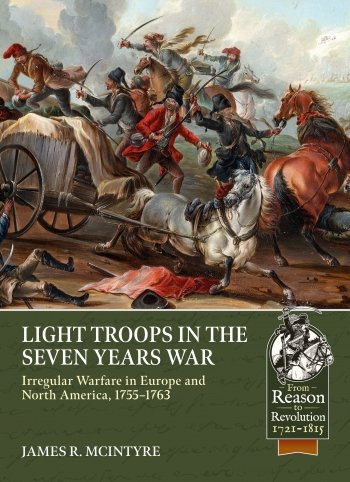-
Załączniki bezpieczeństwa
Załczniki do produktuZałączniki dotyczące bezpieczeństwa produktu zawierają informacje o opakowaniu produktu i mogą dostarczać kluczowych informacji dotyczących bezpieczeństwa konkretnego produktu
-
Informacje o producencie
Informacje o producencieInformacje dotyczące produktu obejmują adres i powiązane dane producenta produktu.HELION
-
Osoba odpowiedzialna w UE
Osoba odpowiedzialna w UEPodmiot gospodarczy z siedzibą w UE zapewniający zgodność produktu z wymaganymi przepisami.
Histories of the Seven Years War or French and Indian War tend to concentrate on the larger engagements. In the European theatre, the attention goes to Rossbach and Leuthen (1757) or Minden (1759). By the same token, in the North American theatre, historians tend to dedicate the most time to engagements such as the Battle of the Monongahela (1755), the attack on Fort Carillon (1758), later renamed Ticonderoga, or the battle on the Plains of Abraham (1759). One consequence of this focus on the larger engagements has been a general tendency to overlook the more constant war of raids, ambushes and scouting that pervaded in both theatres, what contemporaries referred to as the petite guerre or kleine krieg.
Light Troops in the Seven Years War fills this gap by examining not only the conduct of these smaller, but at times operationally and even strategically significant engagements. It draws parallels between the theatres as well. The work surveys the development of irregular troops, sometimes referred to as light infantry, on both continents over the course of the eighteenth century. It goes to provide examples of these troops in action in the Seven Years War. Thus, the focus shifts from the major engagements listed above to smaller encounters such as the ambushes at Gundersdorf and Domstadtl (1758) in Europe. The raid constituted a relatively small attack, but one that had major operational, even strategic consequences. In the North American theatre, the raid on Fort Bull in 1756 is examined, again, an often-overlooked engagement, but one with a significant impact, nonetheless.
The book likewise highlights the careers of various practitioners, recognized by contemporaries, as masters at the conduct of irregular warfare. These figures include Johann Ewald, Andreas Graf Hadik von Futak, Simon-Claude Grassin de Glatigny, Gaspard-Joseph Chaussegros de Léry, Graf Nikolas von Luckner, Johann von Monkewitz and Robert Rogers.








